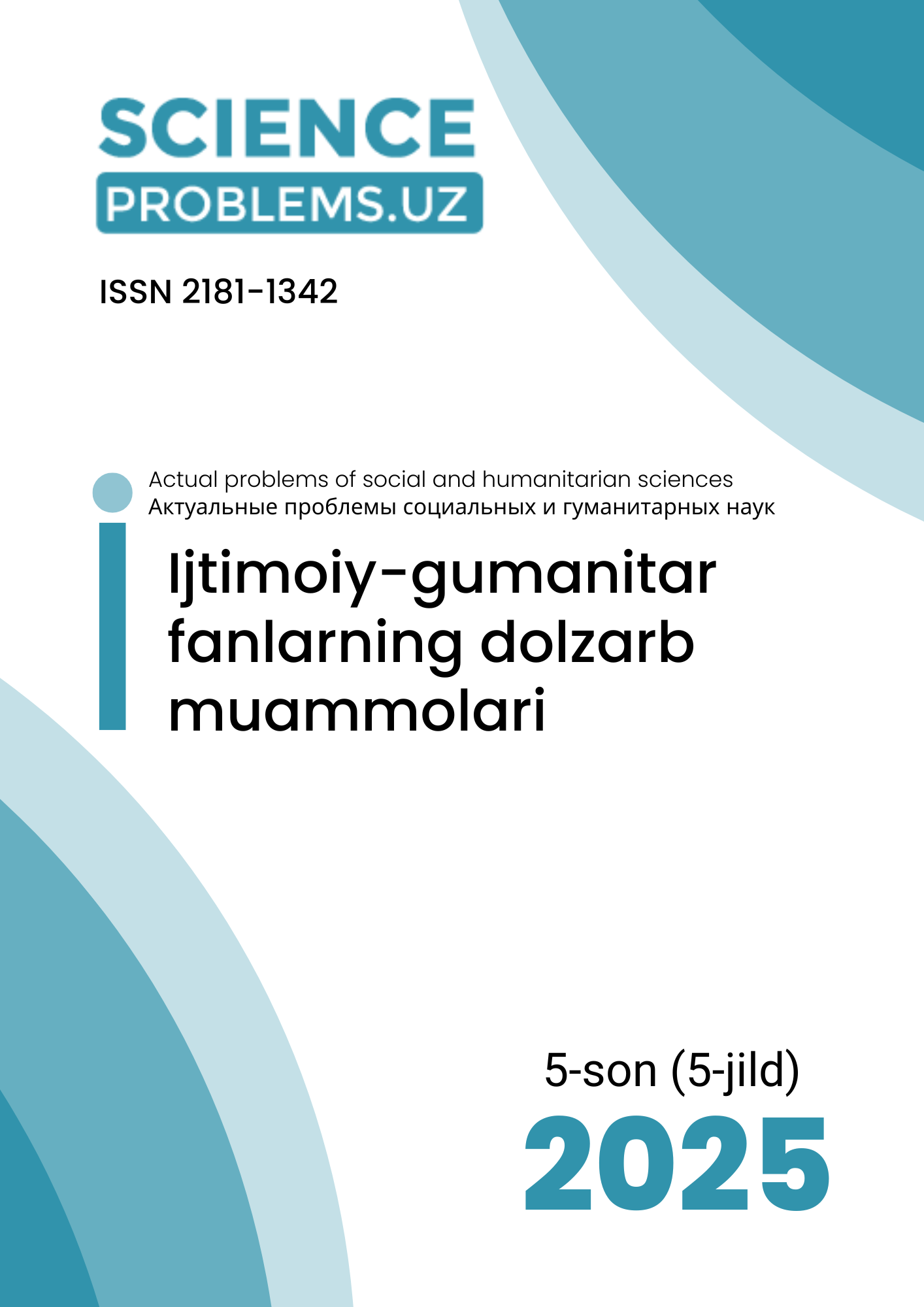THE PROBLEM OF KNOWLEDGE IN THE TEACHINGS OF FAZL IBN AHMAD
DOI:
https://doi.org/10.47390/SPR1342V5I5Y2025N28Keywords:
Islam, body, spirit, social sciences, development, universal interests, progressive development, moral values.Abstract
This article presents a philosophical analysis of the problem of knowledge in the teachings of Fazl ibn Ahmad. It examines his views on the soul, purity, spirit, and the process of cognition as reflected in his works. The article substantiates the relevance of nurturing spiritually developed individuals and raising the spiritual level of youth in the process of building New Uzbekistan, drawing on the teachings of Rumi and especially the ideas of Fazl ibn Ahmad, which are particularly significant in today’s complex era. Furthermore, the article highlights the importance of effectively utilizing the scientific heritage of Fazl ibn Ahmad to promote social development, enhance public well-being, and meet human needs.
References
1. Лестер. Р.Ч. Буддизм. // Религиозные традиции мира. Б., 1997. 147-б.
1. Болтаев А.А. Муҳйиддин Ибн Арабийнинг ижтимоий-фалсафий қарашлари. Бухоро, 2023. – Б.56.
2. فضل بن احمد بن خلف بخاري. عدةالعقول و عمدة المعقول في ايضاح مباني الاصول. مشهد, چاپ موسسه چاپ و انتشارات آستان قدس رضوی. 1371ه.ش-1993م. 41ص
3. Ғаззолий, Абу Ҳомид. Мушкот ул-анвор. –Қоҳира, 1961. –Б.51.
4. Sobirovich, T. B. (2023). Basic Criteria for Building the Third Renaissance in Uzbekistan. Asian Journal of Applied Science and Technology (AJAST), 7(1), 149-157.
5. Sobirovich, T. B. (2024). Renewal of Societal Ideosphere: An Analytical Study of Medieval Philosophical Thought. Philosophy, 8(3), 12-18.
6. Sobirovich, T. B. (2024). Exploring the Ideosphere: A Comprehensive Examination of Eastern Philosophical Perspectives and Their Societal Reflections.








